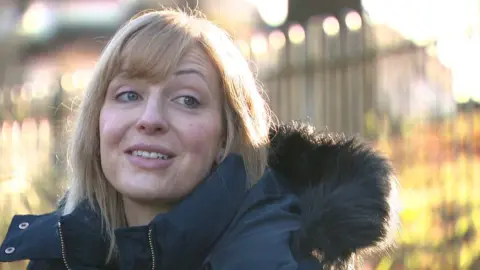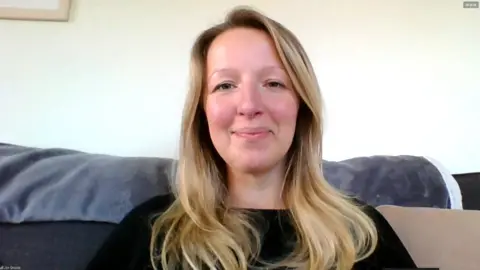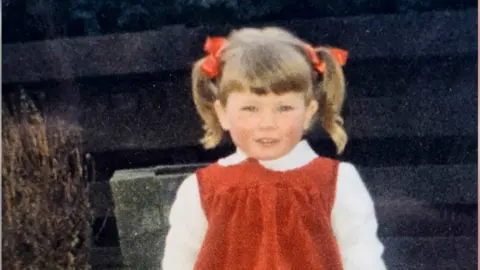My adopted son's life was changed by alcohol in pregnancy
 BBC
BBCWhen Lorna took the leap to adopt, she had no idea her new family could be living with the effects of alcohol for the rest of their lives.
Lorna and her partner, who live near Glasgow, have three children: two boys and a younger girl who is their sibling, but joined them later.
One of her children has been diagnosed with Fetal Alcohol Spectrum Disorder (FASD) - a neurodevelopmental condition caused by ingestion of alcohol during pregnancy.
But she suspects all three were exposed to alcohol during pregnancy.
It affects at least 3-5% of children and adults across all areas of society. In Scotland, clinicians have found evidence it could be prevalent in one in seven babies.
It is a condition that is little known, but could be more common than autism and ADHD combined.
And there is evidence to suggest that because of their background and situation, adopted children are more likely to have the disorder.

Lorna told BBC Scotland that all her children had additional needs and developmental delays and there was a strong possibility" they could all have FASD.
"It is a lifelong disability and it is going to affect my son and our whole family for his whole life," she added.
"He has some sensory issues, finds it hard to regulate his emotions at times. It impacts a lot at school. But now that we have the diagnosis it has been important for accessing support."
Charities are raising awareness of the disorder as part of Adoption Week Scotland to increase knowledge and provide support to those affected.
Lorna said: "Our kids are amazing and we are so lucky to have them but I think it makes such a big difference that their needs are identified at a really young age and helps everybody get the support they need, and for us to understand and be able to advocate for our children."
She is determined not to let the condition hold her son back. She thinks people understand other neurodevelopmental issues like autism more, and wishes people could understand FASD.
She said: "He is an absolute star but he has had so many challenges. Its been hard for him in different situations and school and other situations where until his needs were recognised and supported things could be very difficult.
"People might just think the child isn't behaving but there are actually so many reasons for that behaviour. Our son's self esteem has seemed really low, thinking he is not a good person, when actually he is.
"He has so much potential and we just want to support him in everything he wants to do."

NHS clinical psychologist Dr Jen Shields believes the condition is much more widespread than limited statistics suggest.
An estimate of 3-5% prevalence in the UK is "probably an underestimate", she said.
"There is data to suggest about 40% of babies are exposed to alcohol in pregnancy," she added.
"In Glasgow there is a study at a maternity unit which showed that one in seven babies were exposed to high, binge-level frequent ingestions of alcohol. It is a big problem for Scotland."
Dr Shields said the only way to minimise risk of FASD was to have no alcohol during pregnancy.
With increased awareness, it is hoped affected children can be identified sooner leading to more support to reach their potential - like Carol.

She was diagnosed at birth and was adopted when she was a toddler.
"When my parents adopted me they were openly told the problems I could possibly have going forward," she said.
"Back then in the 80s it wasn't as well spoken about and there wasn't much support in place so it was basically not to expect too much academically, social skills, developmental delays and things like that."
Carol has gone on to have three children of her own and a first class honours degree.
Her advice to adoptive parents is simple: "Be like my mum - be stubborn, prove them wrong. Because every child can flourish as long as they have got the right environment."

Fiona Aitken, from Adoption UK, said: "We want parents to be better prepared, we want them to know what to be looking out for and we want them to know what they should be asking about in their children's history so they can then better access the diagnostic pathway in Scotland.
"And we also think it's really important for parents to know more about it as a condition, to know how to better support their condition, and to know that for a child who has FASD there is still an awful lot of love and an awful lot of absolute wonder you can get in family life with them."
